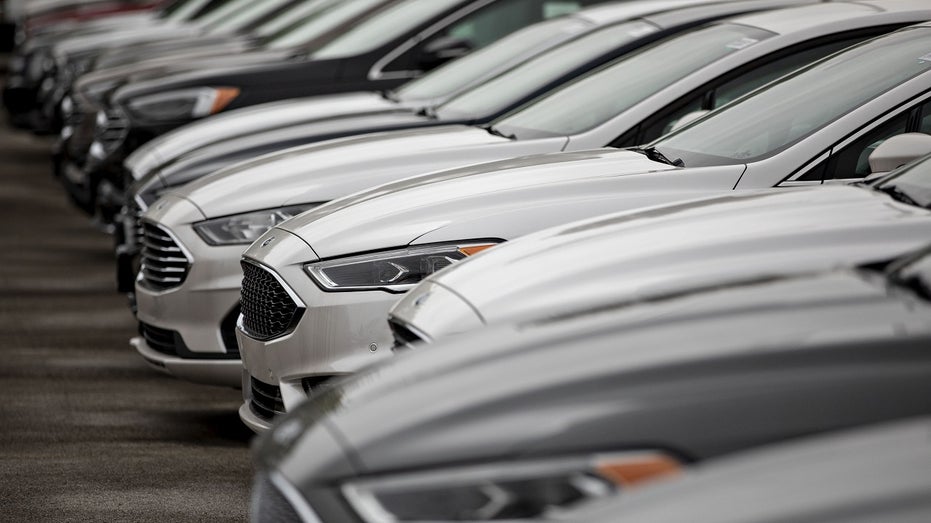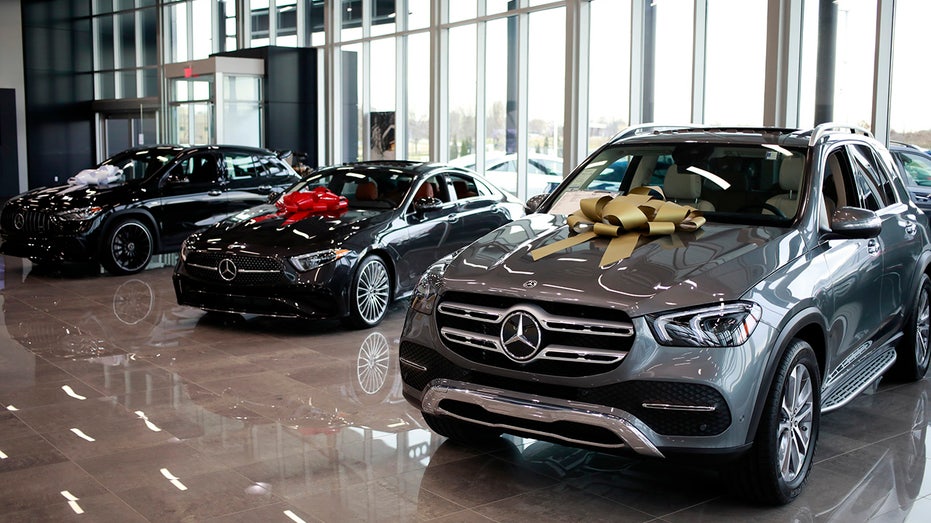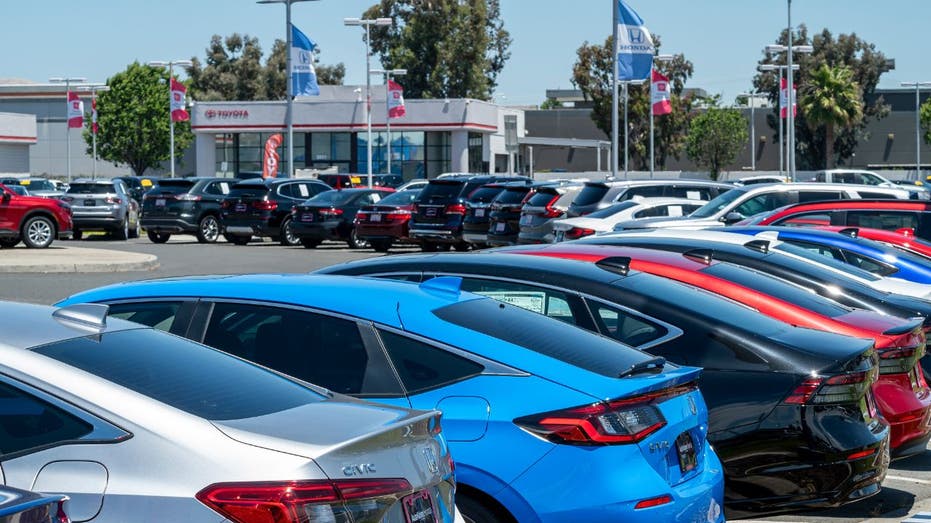US-built vehicles cost $53,000 on average, pricing out budget shoppers
Cars.com report reveals U.S.-assembled vehicles now cost more than Canadian and Mexican imports
Tariffs on the auto industry could result in higher car insurance rates
Getting behind the wheel is about to get a little more expensive. Tariffs could raise the price of car insurance by nearly 10% later this year.
The Trump administration is trying to encourage major car manufacturers to shift production to the U.S., but a recent report underscores how much more Americans will have to pay up if that happens.
Ever since President Donald Trump imposed a 25% tariff in April on all imported passenger vehicles, car experts have been concerned that the cost of new vehicles across the industry would take a massive hit.
In May, the administration imposed a separate 25% tariff on auto parts such as engines, transmissions, power-train parts and electrical components. This means even those vehicles already manufactured domestically will be affected by the higher costs of imported auto parts, barring an exemption made for parts that comply with the U.S.-Mexico-Canada Agreement.
The administration sees tariffs as a way to boost domestic manufacturing but, according to a recent report from Cars.com, vehicles fully assembled in U.S. factories cost $53,000 on average, which is higher than the overall average new car price, which sits at $49,000.
TRUMP'S TARIFFS COULD DRIVE UP AUTO REPAIR COSTS, EXPERTS SAY
David Greene, a Cars.com industry analyst, told FOX Business that American-made cars are becoming increasingly difficult to afford for both economic and structural reasons.

Ford Motor Co. Fusion vehicles are displayed at a car dealership in Orland Park, Illinois, on Sept. 27, 2019. (Daniel Acker/Bloomberg via Getty Images / Getty Images)
For one, Greene noted that vehicles assembled in the U.S. now average a price of more than $53,000, which makes them the most expensive on the market. By comparison, cars built in Canada average $46,000, and cars built in Mexico average $42,000.
"That premium is driven by higher labor costs, stricter safety and emissions standards and a production focus on larger, higher-margin vehicles like full-size trucks and SUVs," Greene said. This means that affordable small cars, which are already in short supply, "just aren’t a priority for most U.S. plants," he added.
CAR DEALERS MOVE TO COMBAT IMPACT OF TRUMP AUTO TARIFFS WITH AI TOOLS
Budget-friendly models, especially those priced under $30,000, are mostly produced abroad because the manufacturing costs are lower. In fact, 90% of those vehicles were imported in April.

Vehicles for sale are seen at the Mercedes-Benz of Louisville dealership in Louisville, Ky., on Dec. 7, 2021. (Luke Sharrett/Bloomberg via Getty Images / Getty Images)
This includes popular entry-level models like the Hyundai Elantra, Kia Forte and Nissan Sentra. Greene noted that only two models that cost less than $30,000 are built in the U.S., including the Toyota Corolla and the Honda Civic, both of which make up a small fraction of the total inventory. Some dealers might have some U.S.-built stock of the discontinued Chevy Malibu, too, according to Greene.
This highlights how affordable imports, which made up only 13% of new car inventory in April, are the most "vulnerable," to tariffs, according to Greene.
The average price of Mexican-built vehicles already spiked $1,100 in April, with overall new car prices rising 0.8% year over year, according to Cars.com data. Imports under $50,000, which account for roughly 60% of all new vehicles, "are bearing the brunt of these increases, leaving fewer affordable alternatives on dealer lots," Greene said.
Shoppers relying on financing or leasing aren't being spared either. New car APRs were higher in April compared with the third quarter of fiscal 2024. Used car loan rates remain around 11%, according to Edmunds.
"Leasing, once a way to lower monthly costs, is becoming less attractive as automakers cut back on incentives, especially for European brands, where lease activity dropped 3.6 percentage points in April alone," Greene said.

Vehicles for sale are seen at an AutoNation Honda dealership in Fremont, California, on June 24, 2024. (David Paul Morris/Bloomberg via Getty Images / Getty Images)
GET FOX BUSINESS ON THE GO BY CLICKING HERE
Here are the most vulnerable vehicles in today’s market, according to Greene:
- Imports under $30,000, which are seeing availability shrink and prices rise
- Imports between $30,000 and $49,000, which make up the fastest-growing price tier and are more than 50% imported
- Luxury European imports, where shrinking lease incentives and tariff costs are hitting both availability and monthly affordability.
Shoppers hit hardest:
- Budget-conscious buyers and first-time shoppers, who typically rely on cars under $30,000. They face a dwindling supply of options.
- Middle-income families who often shop in the $30,000 to $49,000 range still face tariff-related price hikes
- Shoppers who lease, especially those targeting luxury or import brands, are seeing fewer deals
- Brand-loyal buyers are being forced to widen their search. Tariff-affected shoppers are now considering an average of 4.1 brands, up from 1.6.





















